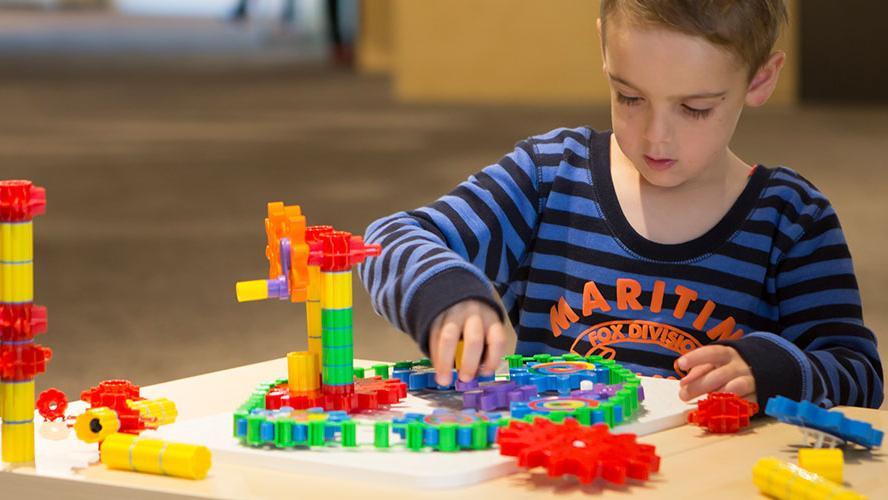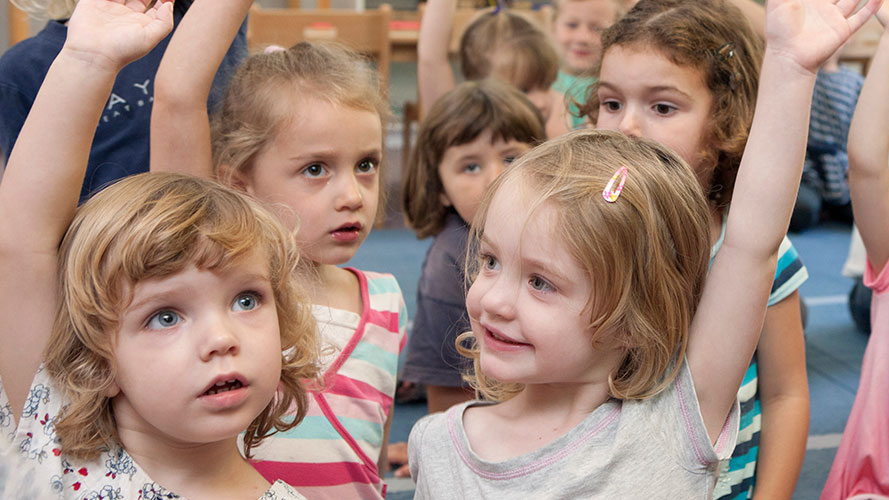Academic Head of Early Start at the University of Wollongong, Professor Marc de Rosnay, gets to see the way both preschoolers and uni students learn on a daily basis, and he thinks the little ones have at least six tricks up their tiny sleeves before they even make the transition into big school.
Why preschoolers make awesome uni students
Kids are great learners, but how would they go when thrown in the deep end of university?
1. Kids play games
Who wants to play shopkeeper? It’s well established that kids learn a huge amount by exercising their imaginations. Professor de Rosnay thinks uni students should follow their lead, put aside their assumptions and… play.
“We often think about play as ‘just for kids’. But that capacity in a child’s imagination to reset parameters and role-play new scenarios is the same skill you need to think through complex problems at university,” Professor de Rosnay says. “We don’t normally call that play as adults but it’s a very similar skill.”
2. Kids make mistakes – lots of them
Most preschoolers aren’t afraid of making mistakes – it’s how they discover new ways of doing things. The more open a university student is to making mistakes, the more open they are to making new discoveries.
“Mistakes are really important for learning, but we socialise people to fear mistakes. When children become worried about making mistakes, their capacity to learn decreases. I think that’s true of university students as well,” Professor de Rosnay says. “The more worried they are of making mistakes, the harder they find it to learn new things, to be creative and exploratory.”

3. They don’t stop asking questions
Why? Why? But, why? What? When? Why?
Preschoolers ask questions. All. The. Time. It’s this insatiable curiosity that helps them make sense of the world. Bring this curiosity to university and you’ll never stop learning.
“Children seek out information and, if you don’t stifle them, they’ll never stop seeking it out. Sometimes we become irritated or overwhelmed, but if a child is asking good questions, they are open to learning. It’s the same from a lecturer’s point of view too – if our students aren’t asking questions, they’re not curious. Questions show curiosity,” Professor de Rosnay says.
4. Preschoolers come with an open mind
As adults, we use what we already know about the world to quickly make sense of new experiences. It helps us get through daily life. But it also means we do less of what makes preschoolers more flexible learners: approaching something new with an open mind.
“Children are more open to the direct experience they’re having because their minds aren’t as structured yet," Professor de Rosnay says. “That gives them different opportunities for taking on new information. As a university student, you have to remind yourself to be open-minded, to sit back and see something with a fresh set of eyes. It’s a skill we see in children all the time. It’s a valuable skill no matter your age.”

5. They practise… a lot
Kids are fast learners, with their brains making hundreds of neural connections every second, but, as with most things in life, there’s no substitute for hard work.
“One of the dominant ways of thinking about neural development in the early years is that, in a sense, all things are possible,” Professor de Rosnay says. Then what happens is that connections get pruned and the strong pathways get reinforced. Can you create new pathways and strengthen pathways later on? Yes, of course. You do that through practise. Activity changes the brain, the brain responds.”
6. Kids work together
Many university students hate group work. But just as kids work together to play out fantasies, university students need to work together solve problems, just like they will in their careers.
“If you watch genuine collaborative play, children will reset the conditions of the world together and then operate on the basis of that understanding. That’s what university students need to do. They need to take on new information and play out how something might turn out, operate or function. Intellectual collaboration through learning,” Professor de Rosnay says.
So while there’s no need to throw away 13-odd years of schooling to succeed at university, it’s worth getting in touch with our preschool selves and see the world with the wonderment and curiosity they do.
Future student news to your inbox
Want to stay up-to-date with news, stories and info about studying at UOW?